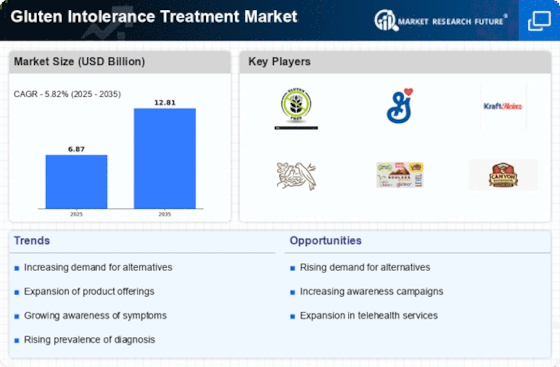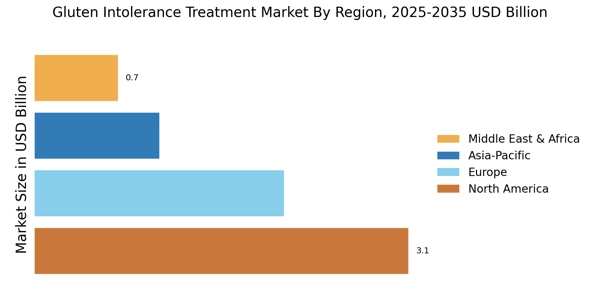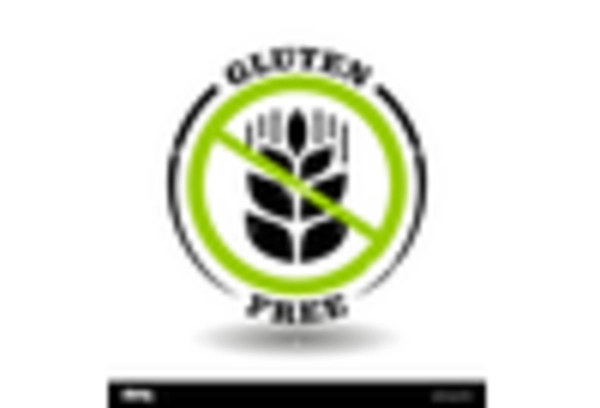Advancements in Diagnostic Technologies
Technological advancements in diagnostic tools are significantly influencing the Gluten Intolerance Treatment Market. Enhanced testing methods, such as genetic testing and advanced serological assays, allow for more accurate and timely diagnosis of gluten-related disorders. These innovations facilitate early intervention, which is crucial for effective management of gluten intolerance. As healthcare providers adopt these advanced diagnostic technologies, the number of diagnosed cases is expected to rise, subsequently increasing the demand for gluten intolerance treatments. This trend underscores the importance of continuous investment in research and development within the healthcare sector to improve patient outcomes.
Expansion of Gluten-Free Product Offerings
The Gluten Intolerance Treatment Market is experiencing a notable expansion in gluten-free product offerings. Food manufacturers are increasingly recognizing the demand for gluten-free alternatives, leading to a proliferation of products ranging from baked goods to snacks and beverages. According to market data, the gluten-free food segment is projected to grow at a compound annual growth rate of over 10% in the coming years. This surge in product availability not only caters to those with gluten intolerance but also attracts health-conscious consumers who perceive gluten-free diets as beneficial. Consequently, this diversification of product lines is likely to enhance market growth and consumer engagement.
Increasing Prevalence of Gluten Intolerance
The rising incidence of gluten intolerance is a pivotal driver for the Gluten Intolerance Treatment Market. Recent studies indicate that approximately 1 in 100 individuals are affected by celiac disease, while non-celiac gluten sensitivity is also on the rise. This growing awareness among consumers about gluten-related disorders has led to an increased demand for gluten-free products and treatments. As more individuals seek diagnosis and management options, healthcare providers are responding by offering specialized treatments and dietary plans. This trend is likely to continue, as the population becomes more educated about the health implications of gluten intolerance, thereby propelling the market forward.
Growing Health Consciousness Among Consumers
The increasing health consciousness among consumers is a driving force in the Gluten Intolerance Treatment Market. As individuals become more aware of the impact of diet on overall health, there is a growing inclination towards gluten-free diets, even among those without diagnosed gluten intolerance. This shift is often motivated by perceived health benefits, such as improved digestion and increased energy levels. Market data suggests that the gluten-free food market is expanding beyond those with gluten intolerance, appealing to a broader audience seeking healthier lifestyle choices. This trend is likely to sustain the growth of the market as more consumers opt for gluten-free options.
Integration of Dietary Management in Healthcare
The integration of dietary management into healthcare practices is emerging as a significant driver for the Gluten Intolerance Treatment Market. Healthcare professionals are increasingly recognizing the role of nutrition in managing gluten intolerance and related disorders. This shift is leading to the development of comprehensive treatment plans that include dietary modifications alongside medical interventions. As healthcare systems adopt a more holistic approach to patient care, the demand for gluten intolerance treatments is expected to rise. This integration not only enhances patient outcomes but also fosters collaboration between healthcare providers and nutritionists, thereby strengthening the market's growth potential.

















